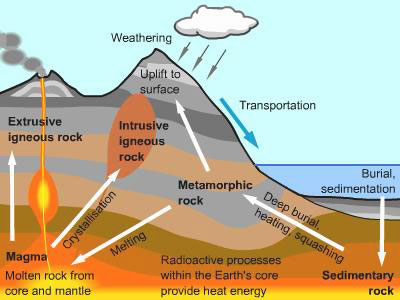An interesting one - I seem to remember reading somewhere that no matter how fast the surface of the earth rotates, it still only rotates once per day - any object on a sphere that rotates once per day, no matter how big the sphere, will feel the same (miniscule) centripetal effects.
Is it true that the only effect of the earth's rotation that we all see day to do is the fact that water swirls going down a plughole? I guess it must go straight down on the equator?
On the subject of inertia, a agree with other posters, since the Earth isn't slowing or speeding, we don't feel any sense of inertia
And lastly, the Earth hasn't significantly changed in mass in a couple billion years I sbouldn't think - due to coastal erosion, weathering and tectonic / volcanic / glacial activity however the surface is constantly being worn down and build up, hence archaeologists specialising in the digging stuff.
I believe I saw some scientist saying that the Earth is slowing, and the Moon is getting closer.
What I don't understand, is what Rusella confirms....ancient artefacts are buried deep withing the earth. Go a few meters down, and it's recent, a few more it's roman, a few more, its prehistoric..so where has this earth build up come from? So therefore, logically, the planet is larger than what it once was. It wasn't people burying stuff. So the planet was once smaller, and that would affect gravity, hence large animals, ie Dinosaurs. but where does this build up come from?
...Where are you suggesting the extra mass came from?
Think of it this way. We are on a giant ball of rock. The centre is iron, and solid. We call this the core. We then have many layers of molten rock, i won't bore you with the names, but while it is rock due to it being molten it can be compressed, and finally the tiny tiny layer of crust on top.
This crust is divided into many plates that 'float' around on the surface and crash into eachother, rip apart from eachother.
when they crash into each other they have 3 options. One they both go up (rare), they both go down (rare), one goes up on the other (common).
When two plates both go down they push into the mantle(molten rock), or when they both go up and create mountains, this creates gaps at their seems where magma seeps out, creating volcanos.
This is pretty rare and commonly one of the plates spring back creating what we call earth quakes.
When one plate mounts the other you commonly you get mountains. Hence the name.
That is half the story.
Secondly, have you ever noticed how if you don't sweep your garden that the path after only a week has a layer of dust/dirt. This is due to the elements constantly 'trying' to flatten a rough object (the earth).
Mountains get worn away, and flows or blows into the compressions into the earth, which because they are heavier, sink slowly and are compressed.
This is the rock cycle in action, which is how limestone (which is ancient river bed and ocean floors are made.)
Basically to cut a long story short, because the plates are surfing around you can't always be sure of the age of something because of how deep it is. You can have sealife fossils found on mountain tops where an old ocean plate has mounted another plate and been pushed up...(causing silly people to believe in a flood that covered the entire world HAHAHA)
...BUT the chances are, though the weight of the crust and it sinking into the molten rock, the lower something is, the older it is.
Here endth the lesson.



